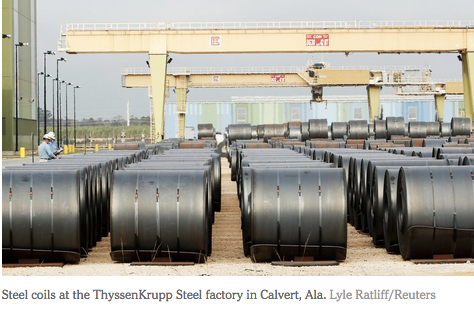WASHINGTON — The White House inflated the potential benefits to workers from a proposed corporate tax cut, according to a Harvard University economist whose work informed the estimate, highlighting a challenge Republicans face as they push a tax rewrite that President Trump has promised will benefit the middle class.
Mr. Trump’s Council of Economic Advisers said in a report released on Monday that reducing corporate taxes could raise average household incomes by as much as $9,000 a year. The top end of that estimate was based on work by a trio of researchers, and on Tuesday one of them, Mihir Desai of Harvard, said Mr. Trump’s team had misread the research. The actual income gain implied by his study, he estimated, would be $800.
Mr. Trump’s economic team disagreed — saying Mr. Desai had erred in interpreting his own paper.
The distinction could prove critical in the public reception to the Republican plan, which bets heavily on the notion that the best way to raise pay for American workers is to cut taxes on their employers.
The Republican proposal, which still lacks key details, thus far includes what analysts project will be only modest reductions in income taxes for many middle-class Americans. But it reduces the top corporate income tax rate to 20 percent from 35 percent, a move that Mr. Trump and Republican leaders say will spark faster economic growth and higher profits. Their theory is that companies will pass those winnings on to workers by raising their pay.




